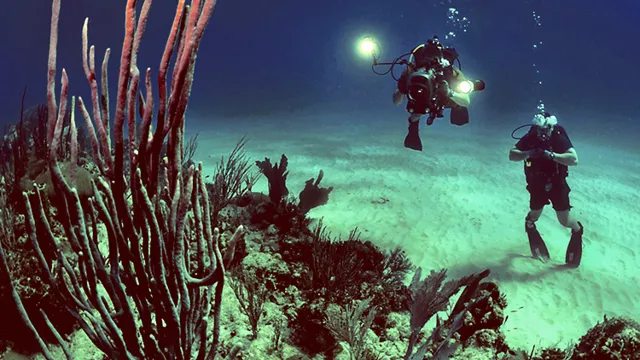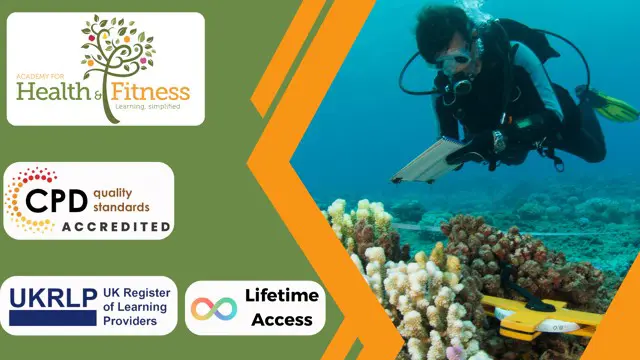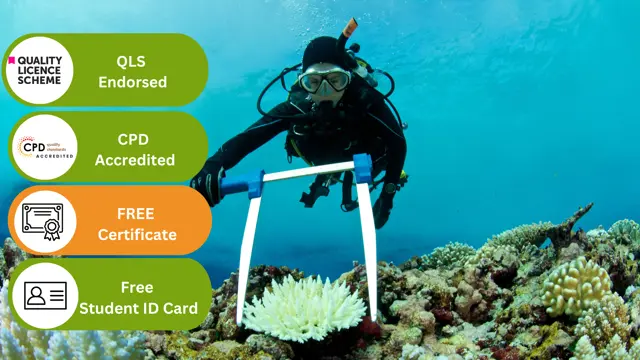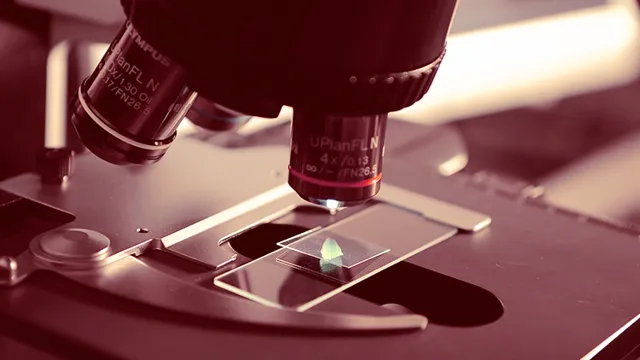Marine Biology Level 5 Diploma - QLS Endorsed
Academy for Health & Fitness
Level 5 QLS Endorsed Diploma! 150 CPD Points| 13 Video Lessons| Lifetime Access |Free ID Card & Assessment
- 30 students
- Online
- 370 hours · Self-paced
- 150 CPD points
- Tutor support
24 Hours Left! Don't Let Year-End Deals Slip Away – Enrol Now! Are you fascinated by the mysteries of Marine Biology that lie beneath the ocean's surface? Do you dream of exploring vibrant coral reefs, studying majestic marine creatures, and understanding the delicate balance of
…








